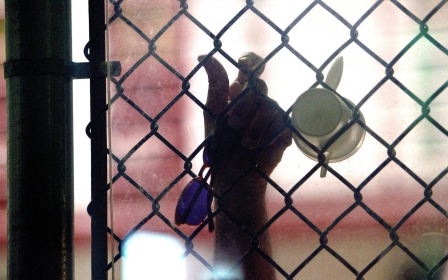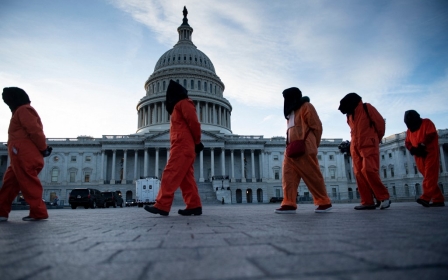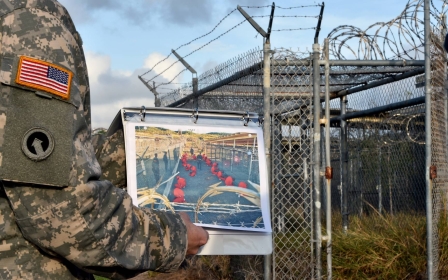Guantanamo: Top Republican lawmakers urge US not to release mentally ill detainee

A group of leading Republican senators have urged US President Joe Biden not to release a mentally ill and tortured Guantanamo detainee who was cleared for transfer last month.
"We write with grave concern regarding your administration's reported decision to transfer terrorist Mohammed al-Qahtani from Guantanamo Bay to Saudi Arabia," Senators Marco Rubio, Jim Risch, and Jim Inhofe said in a letter to the president sent on Tuesday.
"We urge you to immediately reverse this decision as we believe this detainee continues to pose serious threats to U.S. national security."
Republican Congresswoman Elise Stefanik also opposed the release, saying in a statement that the move showed "weakness on the world stage".
The lawmakers raised concerns that Qahtani "may try to resume terrorist activity" if he released. However, Qahtani was ordered "eligible for transfer" last month and recommended to be transferred back to his home country of Saudi Arabia by the periodic review board, a panel composed of several US national security agencies.
New MEE newsletter: Jerusalem Dispatch
Sign up to get the latest insights and analysis on Israel-Palestine, alongside Turkey Unpacked and other MEE newsletters
The detention of Qahtani is "no longer necessary to protect against a continuing significant threat to the security of the United States", the board said in a summary of its decision.
The US government suspected him of being a key player in the planning of the 9/11 attacks, and he was sometimes referred to as the "20th hijacker". However in 2008, the charges against him were dismissed "without prejudice" due to the torture he endured while in captivity.
"We tortured Qahtani," Susan Crawford, a top judicial official in the Bush administration, said in 2009, according to a Washington Post article.
Outside of interrogations, Qahtani was kept in isolation for the first 160 days of his captivity, military records have revealed, and was tortured for at least 48 of the first 54 days he was held.
It was also revealed that he was at times chained and forced to stand for prolonged periods, threatened with a military dog, forced to stand naked, forced to urinate on himself and deprived of sleep. He was also waterboarded, beaten, strangled and forced to endure extreme temperatures and stress positions.
The ordered release of Qahtani comes as President Joe Biden's administration continues working on its stated goal of closing the Guantanamo Bay detention centre after more than two decades.
The US also announced last month that another Saudi prisoner, Ghassan Abdullah al-Sharbi, was approved for release to another country, but US diplomats are still working to find a nation willing to host him.
Schizophrenia and mental health issues
Before he was captured in 2001, Qahtani was diagnosed in Saudi Arabia with schizophrenia and major depression. He was hospitalised in a psychiatric ward on at least one occasion, according to court documents.
Medical records suggest a a traumatic brain injury sustained in a childhood car accident may have caused a neurocognitive disorder.
"After that incident, he suffered from 'episodes of extreme behavioural dyscontrol' and 'auditory hallucinations,'" US District Judge Rosemary M Collyer explained in a 2020 ruling, ordering a panel of doctors to be granted authority over whether or not Qahtani should be released.
"In one incident he was found by Riyadh police in a dumpster and in another he threw a cell phone out of a moving vehicle because 'he believed it was making him 'tired’' and affecting his mind," Collyer continued.
"In 2000, Mr al-Qahtani was committed to the psychiatric unit of a hospital in Mecca after he attempted to throw himself into moving traffic."
Suffering from an "acute psychotic break", during his hospitalisation he expressed suicidal thoughts and was prescribed antipsychotic medication, court documents said.
Before and after his US capture, Qahtani exhibited signs of hallucinations, sometimes hearing and speaking to people who were not there. Reports show interrogators were aware of his mental health issues early on.
He was repeatedly hospitalised and left in life-threatening conditions during those first months, according to military reports.
Middle East Eye delivers independent and unrivalled coverage and analysis of the Middle East, North Africa and beyond. To learn more about republishing this content and the associated fees, please fill out this form. More about MEE can be found here.





